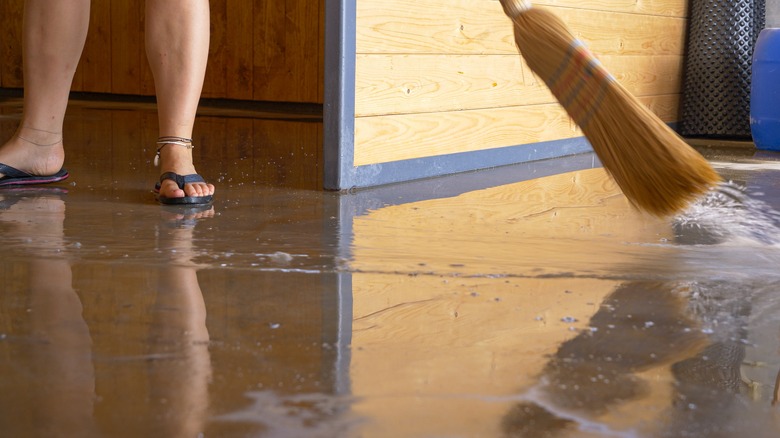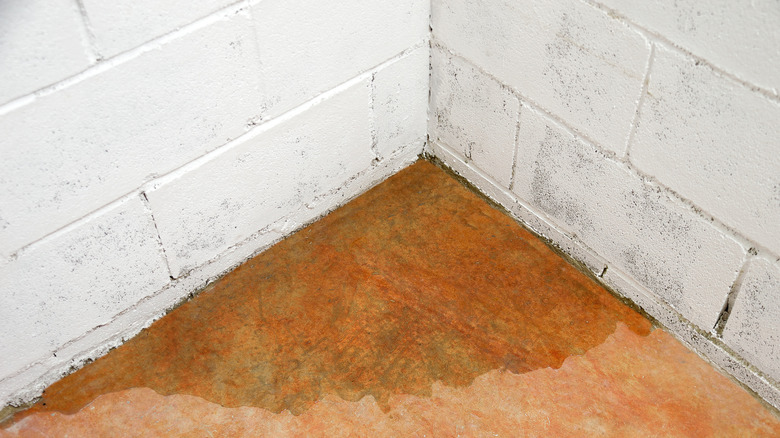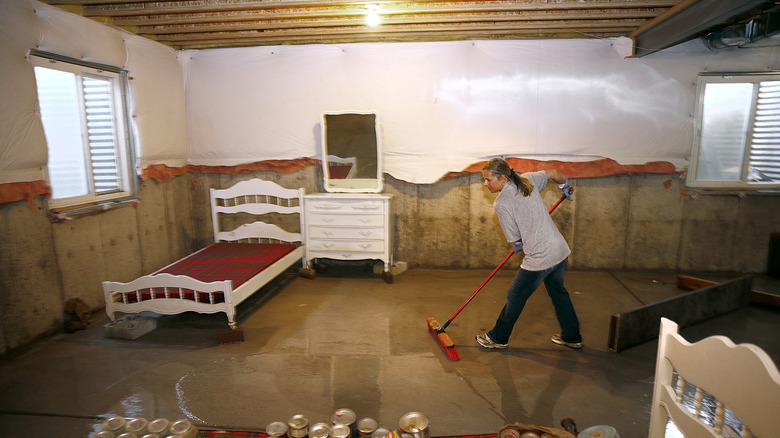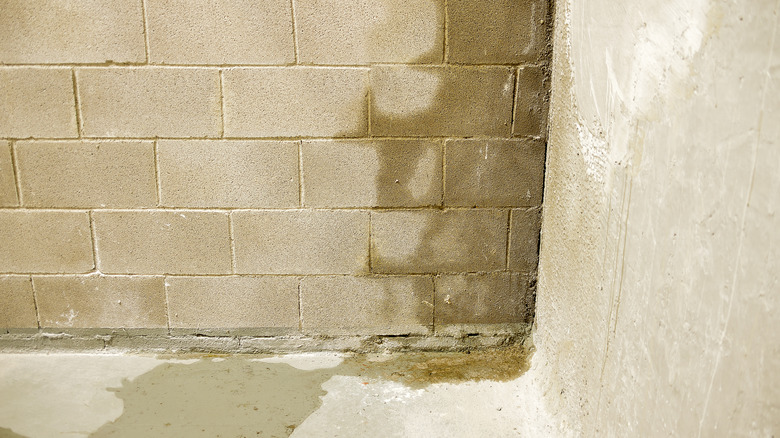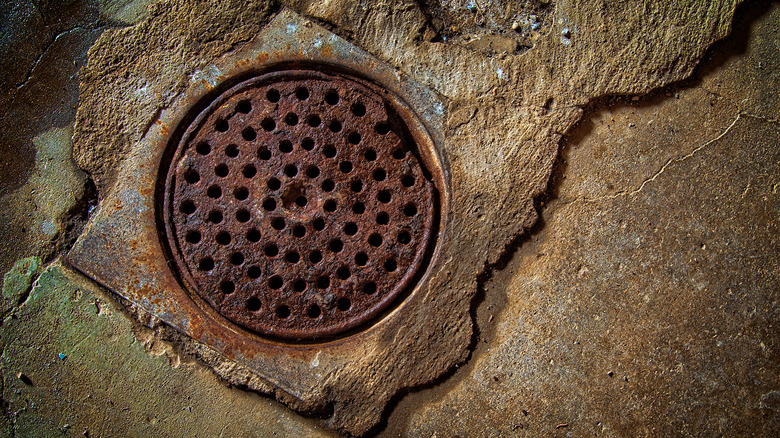How To Easily Find Where Your Basement Leak Is Coming From
Moisture buildup, dampness, and drips in a basement aren't uncommon, but they do require attention. You may notice water dripping from the basement ceiling or that the walls feel damp to the touch. Sometimes there's just water on the basement floor, and you're unsure where it came from. You're sure the sink is off, and the washer is not leaking.
According to Jerry's Waterproofing, whenever water is present in your basement, it is vital to take the time to find where the leak is coming from without delay. Not only can moisture lead to the growth of mold, fungus, and mildew, but if left untreated, it could lead to structural damage to the home, including rotting support beams.
Often it's unclear what is leaking or where the water is coming from unless you can see a drip or discoloration where the water sits. Here are some of the most common areas where the basement leak originates, so you can treat it right away.
Drainage problems
In some situations, the water just seems to be there. You don't see anything obvious dripping or any source for the water. In these situations, it's commonly the foundation of the home that's a concern. The water could be coming in through small cracks along the floor or wall. It could also be coming in through the joint where the wall and floor come together. Many homes have mortar joints at the point of each of the blocks that make up the wall.
In situations like this, the problem typically relates to water having too much access to the foundation. This could be due to poor gutter maintenance, soil that's graded to allow water to flow toward the home, or clogged window wells, according to Basement Systems. It may be possible to repair some of these problems from the exterior of the property, other times, your foundation may require sealing.
Non-functioning sump pump
In some homes, drain tile runs along the basement foundation. It helps to collect and move water from that area away from the home. A sump pump helps it to do that when there's not enough slope away from the house to allow for gravity to do the work.
In some situations, your sump pump may not be working. Other times, there could be something blocking the drain tiles. In the worst-case situation, your home does not have drain tile and a sump pump in place, according to KC Waterproofing and Foundation Repair. If more water is collecting around the home now than it used to, that could be a problem.
You may need a professional to inspect the sump pump and drain tile system to determine if repairs are necessary. It's not always easy to know when this is the problem, but if your sump pump isn't running when it's raining, that's a good sign to get help.
Saturated soil
After heavy rains, the soil surrounding your home could be supersaturated with water. While this could be a good thing for your grass and garden, for your home, it could be a problem if that water has nowhere to go.
The water may cause expansion of the soil, which puts pressure on the foundation walls. In some extreme situations, there could be so much water that it causes cracks to form in the concrete of the foundation. This happens slowly and may not immediately be noticeable. However, Triad Basement Water Solutions states that this could lead to substantial degradation, allowing water to leak into your basement.
Walk around your home a few hours after heavy rain. Is the soil squishy, and your feet sink in? That could mean water is pooling there, making it difficult to drain away. If you notice water in the home after a rain, this could be the cause.
The main drain
Another common cause of basement leaks comes from plumbing problems. Pay close attention to the type of water in your basement. Does it have discoloration to it? Could it have sewage in it? If that's the case, it could be your main drain line or sewer system backing up into the home.
According to Aquamaster, this is because the main drain that moves wastewater from your home out to the street has some type of blockage in it. If this occurs, it's an emergency situation requiring professional plumbing support to properly stop the problem, fix the repair, and clean up the resulting damage.
This is typically a problem centered around the drains in your basement. Look for openings, typically covered with a lid, to determine if this is the concern. However, any floor drain could have water backing up from it, which is an indication that you need to clean the main drain line.
Something inside the home is leaking
While you're looking for foundation problems, the leak in your basement could actually be coming from something in the home, says Armored Basement Waterproofing. For example, is the basement ceiling above the leak wet? What's above that area? If it's a bathroom or a kitchen, check those drains and water lines, as It could be a leak in the ceiling dripping on the basement floor.
Next, check the hot water tank. Does it have any signs of damage or leaks? You may notice water pooling around it or that your water bill is very high. That could indicate there's a leak coming from the hot water heater.
Any of the water lines running throughout the home could also have a leak. Small leaks can create big problems if left unchecked for some time. It is beneficial to do a routine inspection of all the pipework in your home, to be sure everything is working as it should.
